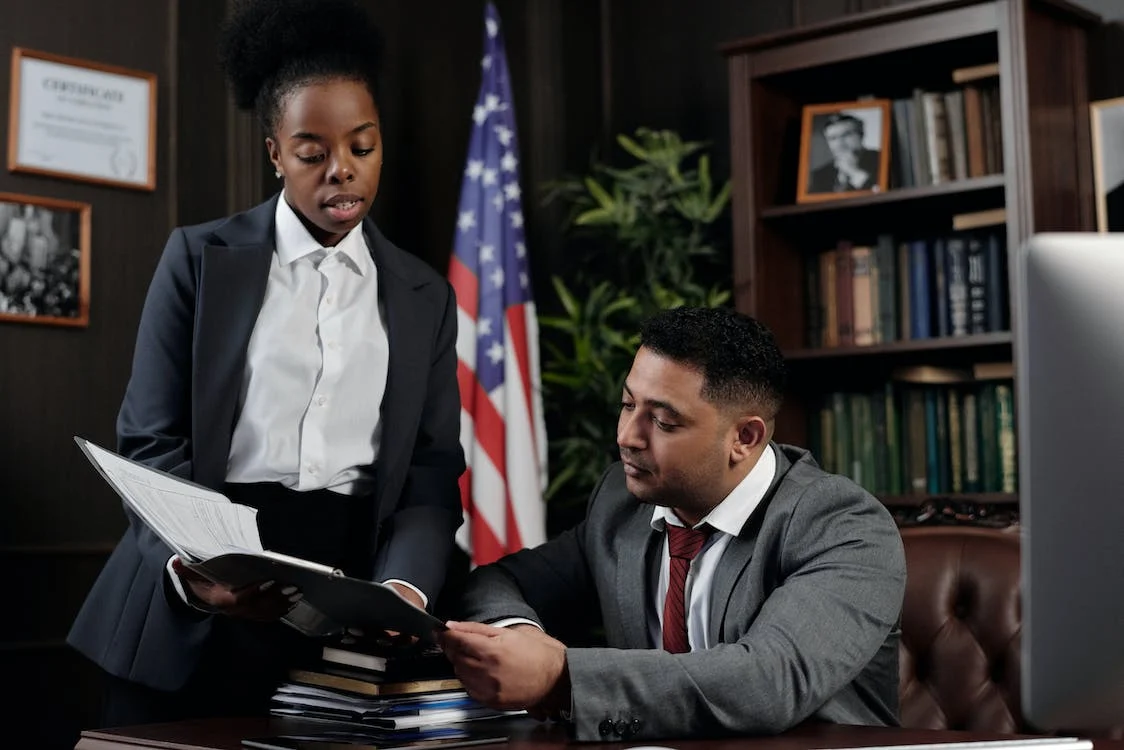J-1 Educational Visa Lawyer: Waivers, Fees & Legal Guidance
Need help with a J-1 Visa or waiver? A J-1 educational visa lawyer can guide you through the application, fees, and waivers. Get expert legal support today. 6 min read updated on April 21, 2025
Key Takeaways:
- The J-1 Visa is part of the Exchange Visitor Program and allows professionals and students to work and study in the U.S.
- Applicants must have a designated sponsor and meet specific eligibility requirements for their program category.
- The J-1 Visa requires participants to return to their home country for two years unless they obtain a waiver.
- J-1 Waiver types include No-Interest, Interested Government Agency, Exceptional Hardship, and Persecution Waivers.
- Fees for J-1 Waiver applications vary depending on legal representation and USCIS processing.
- A J-1 Visa holder can change their status in the U.S. under certain conditions, including switching to an H-1B or marriage-based green card.
- J-1 Visa applicants should be prepared for their visa interview with all required documents and a strong understanding of their program.
- The J-1 Visa sponsorship fee is typically $2,110, while additional costs vary depending on legal and filing fees.
- Hiring a J-1 educational visa lawyer can help ensure a successful application and waiver process.
What is the Exchange Visitor Program (J-1 Visa)?
The J-1 Visa allows professionals and students to work and study through the Exchange Visitor Program. This program has the goal of increasing participation in academic study, providing applicants the chance to gain life experience, and boosting contributions to US innovation and research.
This J1 visa is open to many different types of people, including (but not limited to):
- Scholars
- Students
- Teachers
- Experts
- Health care professionals
- Camp counselors
This visa allows a stay of two years. Note: students also have the option to apply for other visas to enter the United States, such as with the F1 visa.

J-1 Programs
The Exchange Visitor Program has a variety of different programs depending on what you intend to work as or study. Each program has different requirements. They’re divided into the following categories:
- Au Pair
- Camp Counselor
- College and University Student
- Government Visitor
- Intern
- International Visitor
- Physician
- Professor
- Research Scholar
- Secondary School Student
- Short-Term Scholar
- Specialist
- STEM Initiatives
- Summer Work Travel
- Teacher
When deciding which program you should apply to, consider speaking with a J1 visa lawyer, who can help you make the right decision and submit a successful application.

J-1 Sponsors
A private organization or government entity must sponsor the applicant. The State Department must accredit the applicant prior to applying for the J1 visa. Once approval has been granted, the applicant may start the application process.
J-1 Visa Requirements & Limitations
Depending on the program, the requirements vary. However, two common requirements include:
- The applicant must obtain Form DS-2019 (Certificate of Eligibility for Exchange Visitor).
- The applicant must not have the intention of moving to the United States permanently.
Duration of Stay
The J-1 visa allows successful applicants to stay for up to two years.
Eligibility Criteria for a J-1 Visa
Applicants must meet specific eligibility criteria, including:
- Demonstrating English proficiency through standardized tests or sponsor interviews.
- Having a valid sponsorship from an accredited institution or organization.
- Proving financial sufficiency to cover expenses during the exchange program.
- Complying with medical insurance requirements as mandated by U.S. law.
Each program category may have additional requirements, which should be reviewed carefully before applying.
J-1 Visa Waivers
Although the J-1 visa limits stays to two years, the J-1 waiver removes the two-year limitation. The J-1 Waiver typically follows the process as outlined:
- The applicant files a datasheet with the Department of State Waiver Review Division.
- The Department of State will then send a set of instructions for the datasheet.
- The applicant fills out Form I-162 with the USCIS for authorization.
- If approved, Form I-162 will be sent to the Department of State Waiver Review Division for a final decision.
For more information on how to successfully apply for a J-1 Visa Waiver, consider speaking with a J1 waiver lawyer.
Process for J-1 Waiver Approval
Obtaining a J-1 Waiver involves multiple steps:
- Determine Eligibility: Identify the appropriate waiver category based on individual circumstances.
- File Form DS-3035: Submit the J-1 Visa Waiver Recommendation Application to the U.S. Department of State.
- Receive Case Number: After submission, applicants receive a waiver case number for tracking purposes.
- Submit Supporting Documents: Documents such as sponsor letters, hardship proofs, and affidavits must be provided.
- Obtain Sponsor's Statement: Some waiver types require a statement of no objection from the applicant's home country.
- Receive Final Decision: The Department of State will review the waiver request and make a final determination.
A J-1 educational visa lawyer can ensure accurate submission of all required documents, increasing the chances of approval.
Waiver of the Two-Year Foreign Residence Requirement
The two-year foreign residence requirement makes it so visitors must return home for at least two years after the completion of the Exchange Visitor Program. If returning home is not an option, then the visitor must apply for a J-1 Waiver.
No-Interest Waiver
The No-Interest Waiver allows for the visitor’s country of origin or previous residence to provide a statement showing that the government does not object to the J-1 Waiver and is not requiring the visitor to return home. Visitors receiving medical training and those who received government funds will likely not be approved for the No-Interest Waiver.
Interested Government Agency Waiver
An Interested Government Agency will submit this waiver to the Department of State, indicating that the visitor’s departure would hurt the agency. Typically, government agencies or physicians who work in underfunded areas will use this form to extend the visit.
Exceptional Hardship
The Exceptional Hardship Waiver will be used when exceptional hardship will be produced as a result of the visitor’s departure. This waiver would typically be used when there are spouses or children involved. Other justifications could include hardship that’s:
- Cultural
- Economic
- Medical
- Physiological
- Business
- Political
- Radical
- Religious
Persecution Waiver
If J-1 visa holders fear they may be prosecuted for race, political, or religious reasons, then visitors may be granted approval for this waiver. In these cases, seeking asylum may also be an option.
J-1 Waiver Denial
Receiving a J-1 Waiver denial can be tough to deal with. Unfortunately, that decision is usually final, as the process can be extensive and rigorous.
You are, however, able to apply under a different J-1 Waiver type. Hiring a J1 waiver attorney may help you be successful in future applications.
Reasons for J-1 Waiver Denials & How to Appeal
Denials may occur due to:
- Insufficient documentation or missing evidence of hardship.
- Lack of sponsorship support for waiver approval.
- Failure to meet the eligibility criteria for the requested waiver.
- Errors in the application process.
If denied, applicants may:
- Reapply under a different waiver category.
- File a motion for reconsideration if new evidence supports their case.
- Seek legal counsel to explore alternative visa options.
An experienced J-1 educational visa lawyer can provide valuable guidance on reapplying or appealing a waiver denial.
Foreign Residency Requirement
The “Two-year Home Country Physical Presence Requirement” or the “Home Residence Requirement'' are both names used for the Foreign Residency Requirement. They are referring to the same process.
J-1 Waiver Attorney Fees
A typical J1 waiver attorney fee is $3,000.

Change Status in the USA
Change of status fees in the United States may vary, but typical fees are shown below.
| Attorney Fee | $3,000 |
| USCIS filing fee | $370 |
| Biometrics fee for each family member (if applicable) | $85 |
| Student and Exchange Visitor Information System (SEVIS) fee | $200 |
Application outside of USA at a Consular Office:
Change of status fees outside of the United States may vary, but typical fees are shown below.
| Attorney Fee | $3,000 |
| Attorney Fee for Family Application (if applicable) | $1,000 |
| Reciprocity Fee per person US Consular fees | $160 |
| Student and Exchange Visitor Information System (SEVIS) fee | $200 |
Switching from J-1 Visa to H-1B or Green Card
Changing status from J-1 to another visa requires fulfilling specific requirements:
- J-1 to H-1B: Requires an employer sponsor, a specialty occupation, and an approved Form I-129 petition.
- J-1 to Green Card: Possible through employment-based sponsorship, marriage to a U.S. citizen, or investment-based pathways (EB-5 visa).
- J-1 to F-1 Student Visa: Requires acceptance into a SEVP-certified academic institution and an approved Form I-539.
Each transition process involves extensive documentation and legal procedures. Consulting a J-1 educational visa lawyer can help ensure compliance with USCIS regulations.
Frequently Asked Questions
-
Can I extend my J-1 Visa beyond two years?
Extensions are available for some categories but require sponsor approval. Otherwise, a waiver may be necessary. -
What happens if my J-1 Visa expires while my waiver is pending?
You may need to leave the U.S. while awaiting a decision unless you obtain a change of status. -
Can I apply for a green card while on a J-1 Visa?
Yes, but only if you are eligible for a J-1 Waiver or have fulfilled the two-year home residency requirement. -
How do I know if I am subject to the two-year home residency requirement?
Check your visa stamp or Form DS-2019, or consult an immigration attorney for verification. -
Do J-1 Visa holders pay Social Security and Medicare taxes?
Generally, J-1 holders are exempt from these taxes for the first two years of their stay in the U.S.
Get help from an UpCounsel lawyer to successfully obtain your J-1 visa
Post a new job on UpCounsel to get legal help on filing for a J-1 Visa. UpCounsel accepts only the top 5% of lawyers to its site. Lawyers on UpCounsel come from law schools such as Harvard Law and Yale Law, and average 14 years of legal experience, including work with or on behalf of companies like Google, Menlo Ventures, and Airbnb.
